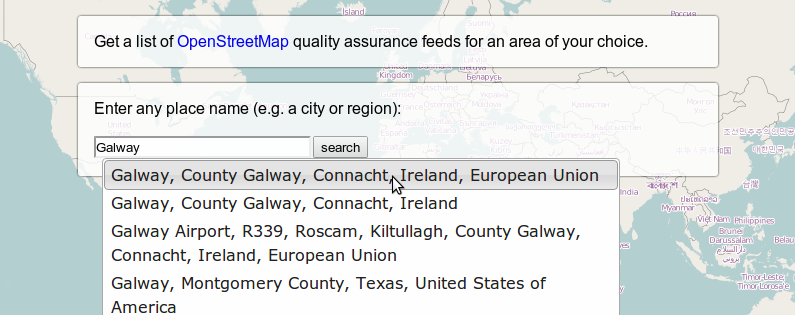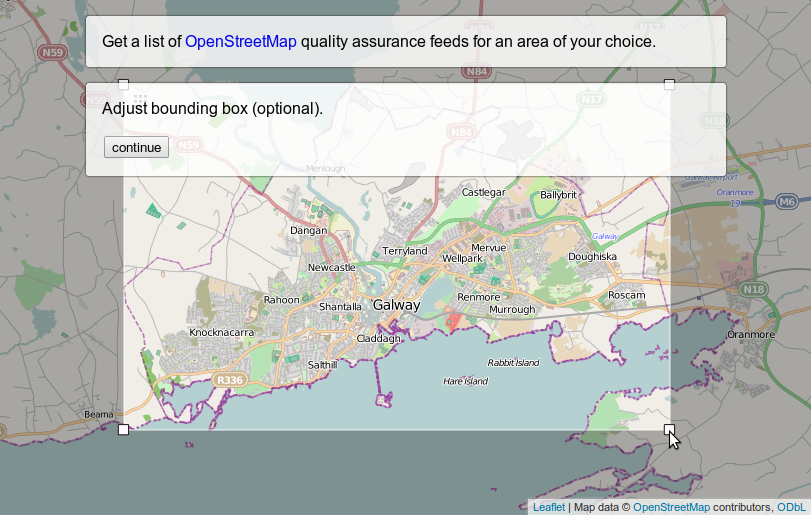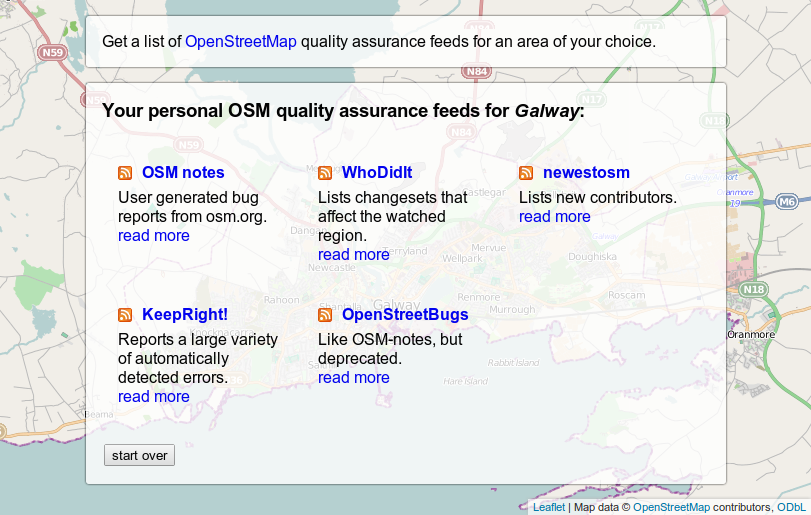OSM has quite a few good quality assurance tools; some of which even provide RSS-feeds. That’s great, but sometimes the feeds are hard to find or may even require some manual bounding-box-hacking. :(
To solve this I created osm-qa-feeds, which allows to create personalized regional feeds for the various quality assurance tools out there. Here are the few simple steps of how to use it:
Step 1: Search your region


Step 2: Adjust the bounding box

Step 3: Done. You can now use one or more of the personalized feeds in your favourite feed-reader.

PS: If you know another QA tool that provides feeds and that should be added to the list: Head over to the source code on github (pull requests are welcome) or leave a comment here.

Discussione
Commento di HannesHH il 11 settembre 2013 alle 09:10
Nice! http://www.itoworld.com/ have feeds for the mapping activity watching too.
Commento di tyr_asd il 11 settembre 2013 alle 09:56
Thanks! I didn’t know about ITO’s OSM Mapper. Unfortunately, it’s not possible to automatically create the feed URL for it, though (because one has to sign up for an account first)… I’ve added it anyhow.
Commento di Vincent de Phily il 11 settembre 2013 alle 11:30
I like it too :) You should mention it on the talk mailinglist.
Other QA tools include http://tools.geofabrik.de/osmi/ and http://osmose.openstreetmap.fr/en/map/ , but I can’t find an RSS feed for them (osmose has an user-based feed, but apparently no bbox-based one).
Commento di mikelmaron il 11 settembre 2013 alle 14:32
Handy! Can imagine this being straightforward to integrate into osm.org too.
Commento di DaCor il 11 settembre 2013 alle 17:17
This is excellent, nice work
(love that you picked my home city too :) )
Commento di Vincent de Phily il 12 settembre 2013 alle 09:33
General RSS feeds is on the osmose todo list.
Commento di stragu il 15 settembre 2013 alle 08:56
Great work, thanks for that!!
Commento di stragu il 19 settembre 2013 alle 04:36
Added on the RSS wiki page. Maybe we should mention it on the QA wiki page too?
Commento di !i! il 18 ottobre 2013 alle 23:31
Not bad, should be integrated into the official webfrontend!